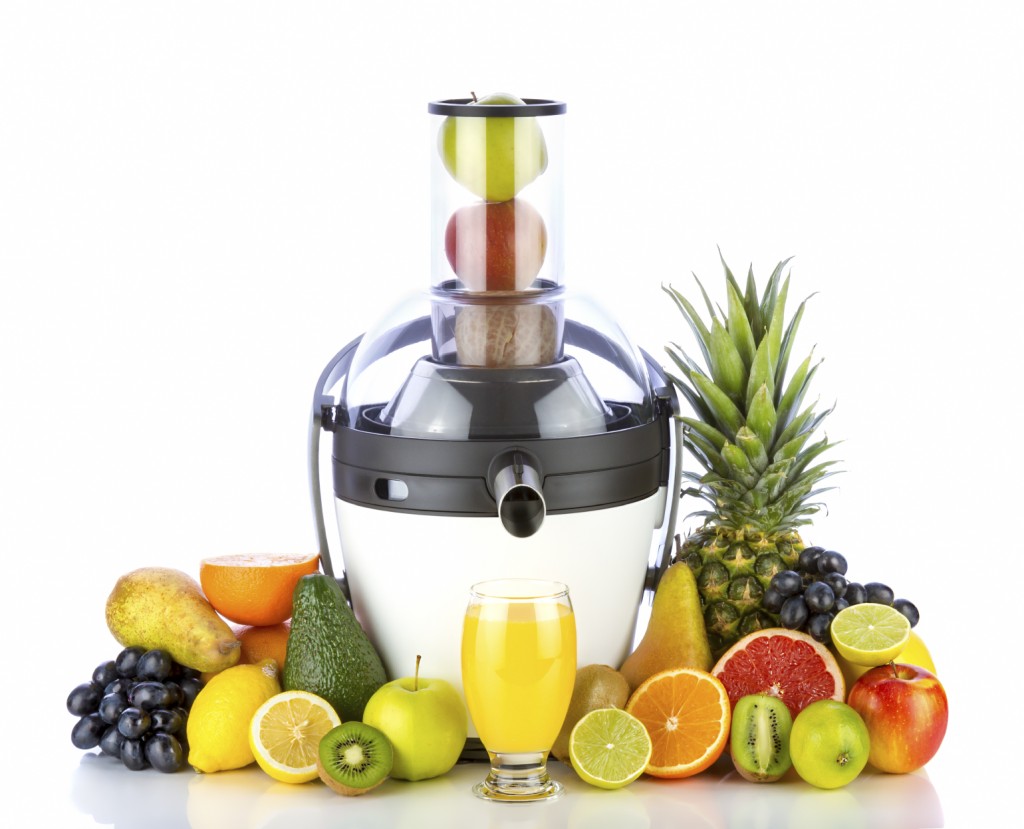
Juicing – A Healthy Choice?
Have you tried juicing yet? It seems more and more of us are embracing this trend and adding freshly juiced fruits and vegetables to our diets. As with any new trend, advocates and critics seem to disagree over its effects and if it should be incorporated into our diets. So what are the benefits of juicing and how can it potentially affect your health?
Juice Revolution
Juicing is big business! Juice bars are popping up across the country, driven by people concerned about their health, discouraged by the standard American diet. Barrons reports that juicing has become a $5 billion business and it’s projected to grow by 4% to 8% each year. Grocery stores now carry huge selections of juices and smoothies. Displayed proudly on the side of many of these products are lists of the various fruits and vegetables that went into making them. People are enticed and excited at the convenience of it, thrilled that they can get their 5 a day just by drinking these concoctions.
Are There Health Benefits to Juicing?
Juicing can be a fairly controversial subject. Advocates claim that it can cure illnesses, aid weight loss, and help your body to obtain a supercharged burst of nutrients. The popular 2010 documentary Fat Sick and Nearly Dead, promotes the idea of juicing to achieve drastic weight loss. The documentary maker Joe Cross even claims his 60-day juice fast essentially cured his autoimmune disease. It’s clear from watching the documentary that it can be extremely beneficial in some cases, but what the documentary doesn’t discuss is the side effects of such an extreme diet.
Juicing whole fruits and vegetables can give you a concentrated burst of vitamins and minerals in greater quantities than if you were to eat the same produce, simply because it would be difficult to eat that many fruits and veggies in one day. Juice fans often say that having a juice first thing in the morning helps boost their energy levels and leaves them feeling less sluggish. Juicing can help people with busy lives to obtain many essential vitamins and minerals quickly and efficiently.
It’s important to note that scientists haven’t found any evidence that extracted juices are healthier than whole fruits and vegetables. While fresh juice contains the same vitamins, minerals and phytonutrients found in fruits and vegetables, it lacks fiber, which aids digestion and helps to keep bowel movements regular.
In some cases, consuming too much juice can cause diarrhea and acid reflux. Many fruits and some vegetables are high in sugar and regularly consuming juices with these ingredients can cause weight-gain, tooth decay and other health problems.
Tips for Juicing Effectively
- Limit the amount of sugary fruit and vegetables in your juice to 1 or 2 pieces per serving. Too much natural sugar can affect insulin levels and cause weight gain. Great low sugar additions are cucumber, lemon, lime, spinach, and kale.
- Try to vary the fruits and vegetables you regularly juice for the best health benefits. By switching up your ingredients, you provide your body with a variety of vitamins and minerals.
- Drink your juice as soon as you’ve prepared it, or soon after. Once it’s exposed to air it loses live enzymes and begins to degrade. As fresh juice isn’t pasteurized, bacteria can form if it’s left out, which can potentially make you sick.
- Wash the juicer immediately after juicing. Cleaning it after the fruit and vegetable pulp has hardened can be difficult. Make your life easy and wash it as soon as you’ve used it.
It may take a while to adjust to the taste of fresh juice, it isn’t as sweet as the traditional carton varieties, but it can be a quick and easy way to give your body a supercharged boost of vitamins and minerals. If you want to incorporate fresh juice into your diet, the web has many resources and recipe ideas.
Sources:
http://www.cancer.org/treatment/treatmentsandsideeffects/complementaryandalternativemedicine
http://www.mayoclinic.org/healthy-living/nutrition-and-healthy-eating/expert-answers/juicing/faq-20058020
http://foodbabe.com/2013/08/05/juicing-mistakes/